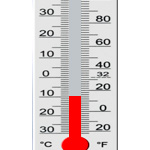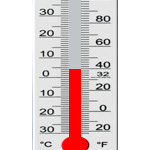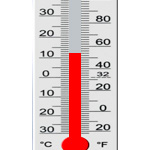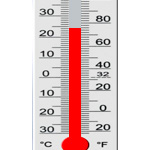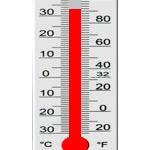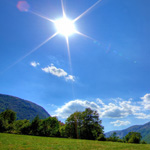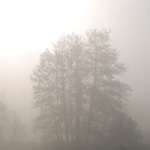Lesson 12
In this lesson, you’ll learn:
VOCABULARY AND PHRASES
- Weather
- Seasons
- Months
- Dates
GRAMMAR:
Catenative verbs (verbs followed by verbs)
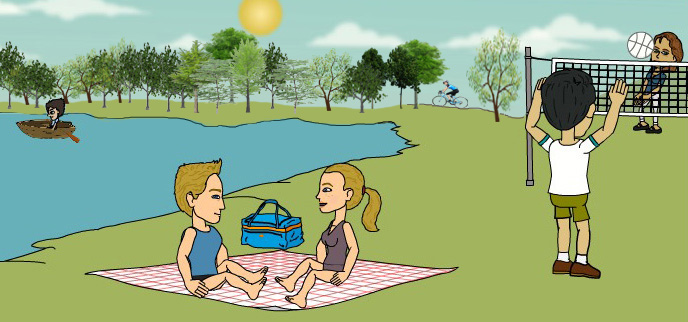
T:Ale pogoda! Jest tak ciepło!
A:Tak. Świeci słońce, wieje lekki wiatr. Świetnie.
T:Umiesz pływać?
A: Oczywiście. Ale wolę jeździć na rowerze albo biegać.
T:Ja za to bardzo lubię pływać. Ale najbardziej lubię zimę i sporty zimowe. Jestem urodzony w styczniu :)
A:a ja w maju, ale lubię wszystkie pory roku.
***
A:Marek, jaką porę roku lubisz najbardziej?
M:Wiosnę.
A:A lubisz sporty zimowe?
M:Nie, nie lubię śniegu. Zimą marznę i trzeba nosić na sobie tyle ubrań.
A:To co robisz zimą?
M:Siedzę w domu przy ciepłej herbacie i czytam. Czasami chodzę do kina albo na koncerty.
A:Nie uprawiasz sportu?
M:Gram w koszykówkę. To na szczęście można robić wewnątrz.
A: A kiedy masz urodziny?
M:Piątego sierpnia.
|
Ale pogoda! |
What weather! |
|
|
Jest ciepło. |
It’s warm. |
|
|
Świeci słońce. |
The sun is shining. |
|
|
Wieje lekki wiatr. |
A light wind is blowing. |
|
|
umieć |
to be able to |
|
|
woleć |
to prefer |
|
|
jeździć na rowerze |
to cycle |
|
|
biegać |
to run |
|
|
najbardziej |
most |
|
|
sporty zimowe |
winter sports |
|
|
Jestem urodzony w styczniu. |
I was born in January. |
|
|
pora roku |
season |
|
|
śnieg |
snow |
|
|
trzeba |
you have to (impersonal) |
|
|
uprawiać sport |
to do sport |
|
|
koszykówka |
basketball |
|
|
na szczęście |
fortunately |
|
|
wewnątrz |
inside |
|
|
urodziny |
birthday |
|
Weather
Learn the weather vocabulary and take the tests below.
|
|
Jest mróz. |
|
|
|
Jest zimno. |
|
|
|
Jest chłodno. |
|
|
|
Jest ciepło. |
|
|
|
Jest gorąco. |
|
|
|
Świeci słońce. |
|
|
|
Pada deszcz. |
|
|
|
Pada śnieg. |
|
|
|
Jest mgła. |
|
|
|
Jest burza. |
|
Related interactive test: Weather - picture test.» take the interactive test
Related interactive test: Weather forecast - listening.» take the interactive test
Months
|
styczeń |
January |
|
|
luty |
February |
|
|
marzec |
March |
|
|
kwiecień |
April |
|
|
maj |
May |
|
|
czerwiec |
June |
|
|
lipiec |
July |
|
|
sierpień |
August |
|
|
wrzesień |
September |
|
|
październik |
October |
|
|
listopad |
November |
|
|
grudzień |
December |
NOTE: Polish names of the months are written with in lowercase letters.
Related interactive test: months.» take the interactive test
To say “in January”, preposition “w” is used alongside with locative case
|
w styczniu |
|
|
w lutym |
|
|
w marcu |
|
|
w kwietniu |
|
|
w maju |
|
|
w czerwcu |
|
|
w lipcu |
|
|
w sierpniu |
|
|
we wrześniu |
|
|
w październiku |
|
|
w listopadzie |
|
|
w grudniu |
Related interactive test: Months (after "w").» take the interactive test
Seasons
|
wiosna |
spring |
|
|
lato |
summer |
|
|
jesień |
autumn |
|
|
zima |
winter |
To say “in summer” instrumental case is used (with no preposition).
However for spring and autumn prepositional phrases are more common.
|
wiosną |
|
na wiosnę |
|
|
latem |
|
|
|
|
jesienią |
|
na jesień |
|
|
zimą |
|
|
Dates
When indicating a day in a month and a month, we use ordinal numbers in genitive (masculine form as we refer to the word „dzień” – day) and genitive for the month
03.03 – trzeciego marca
05.08 – piątego sierpnia
22.01 – dwudziestego drugiego stycznia
16.11 – szesnastego listopada
Months in genitive
|
stycznia |
|
|
lutego |
|
|
marca |
|
|
kwietnia |
|
|
maja |
|
|
czerwca |
|
|
lipca |
|
|
sierpnia |
|
|
września |
|
|
października |
|
|
listopada |
|
|
grudnia |
|
Related interactive test: Dates- dictation.» take the interactive test
Infinitive
If a verb is followed by another verb (catenative verbs), the other verb is used in infinitive form. The most common verbs followed by an infinitive are:
1.Umieć – to be able to
Umiesz pływać? (Can you swim?)
2.Lubić – to like
Lubię tańczyć (I like dancing.)
3.Woleć – to prefer
Wolę jeździć na rowerze. (I like cycling.)
4.Chcieć – to want
Chcę kupić samochód. (I want to buy a car.)
5.Trzeba – you have to (invariable form indicating the necessity of doing sth)
Trzeba się dużo uczyć. (You have to learn a lot.)
Related interactive test: Revision - lesson 12.» take the interactive test
 LearnPolish
LearnPolish
